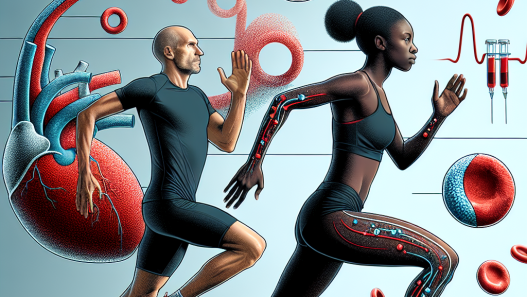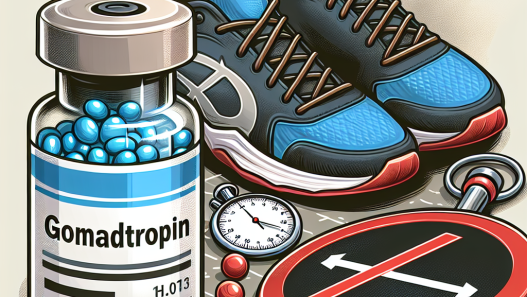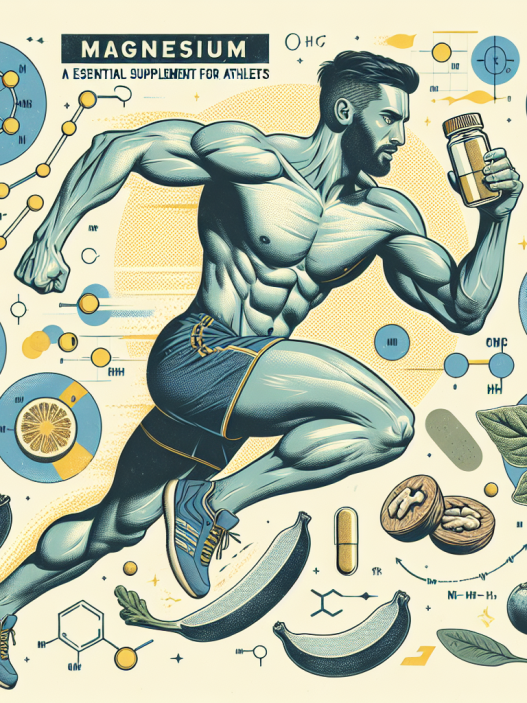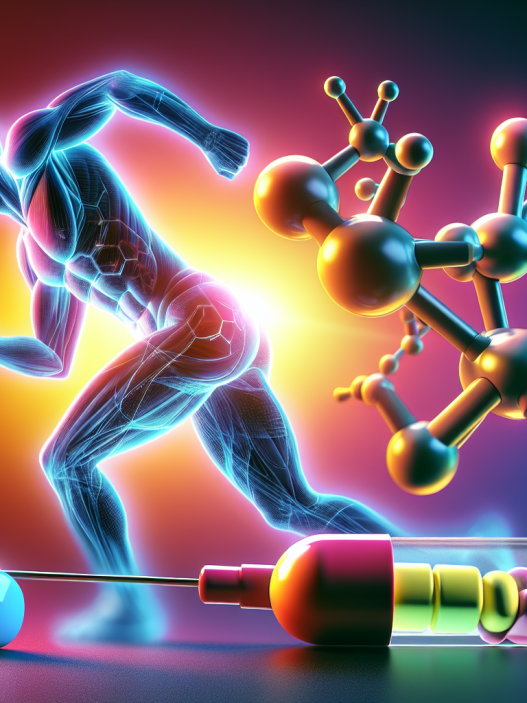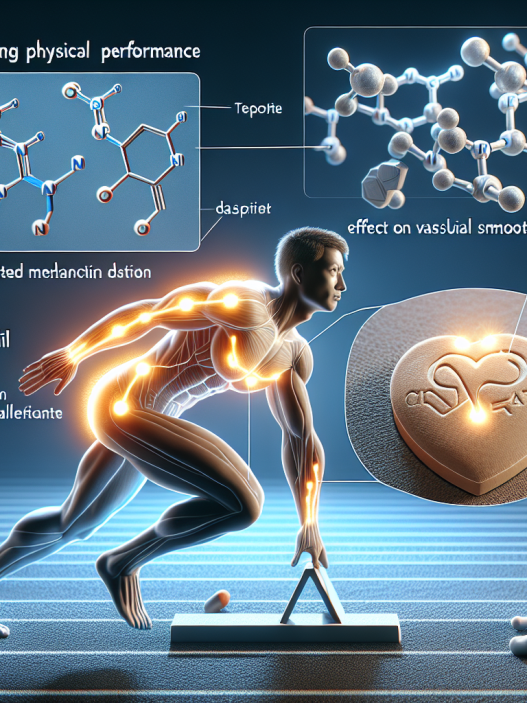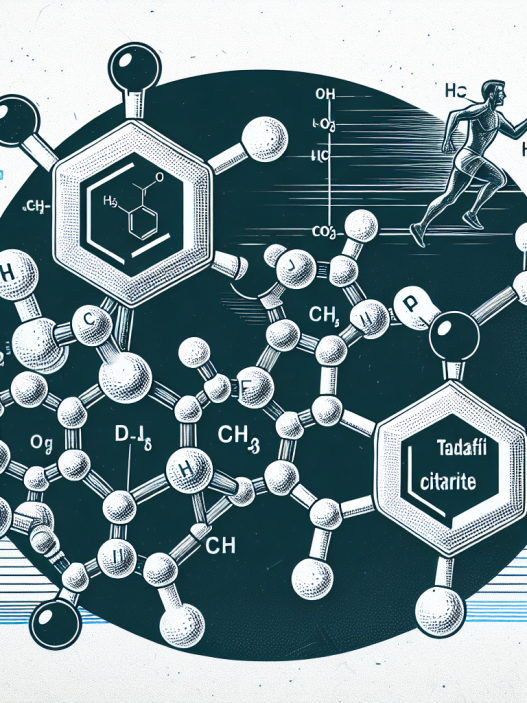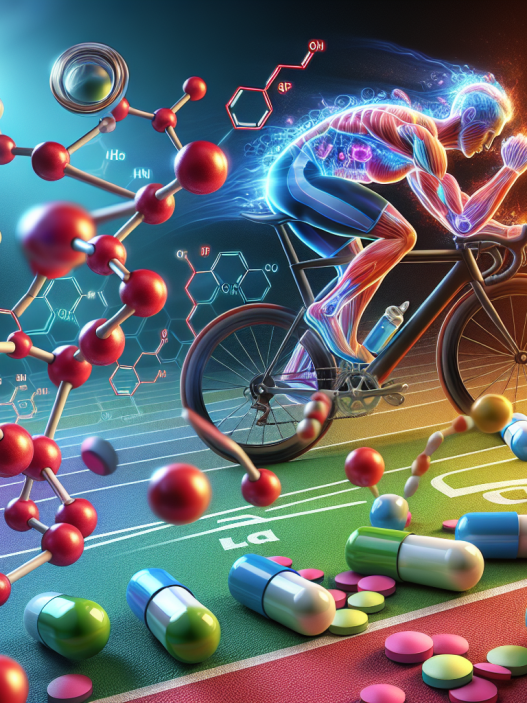-
Table of Contents
The Influence of Magnesium on Muscle Oxygenation during Sports
Sports performance is a complex interplay of various physiological and biochemical factors. One of the key factors that can significantly impact athletic performance is the level of oxygenation in the muscles. Adequate oxygenation is crucial for the production of energy and the removal of metabolic waste products during exercise. In recent years, there has been growing interest in the role of magnesium in muscle oxygenation and its potential influence on sports performance. This article will explore the current research on the effects of magnesium on muscle oxygenation during sports and its implications for athletes.
The Role of Magnesium in Muscle Oxygenation
Magnesium is an essential mineral that plays a vital role in various physiological processes, including muscle function. It is involved in over 300 enzymatic reactions in the body, making it crucial for energy production, protein synthesis, and muscle contraction (Volpe, 2015). Magnesium also plays a significant role in maintaining electrolyte balance and regulating blood flow, both of which are essential for optimal muscle oxygenation during exercise.
During physical activity, muscles require a constant supply of oxygen to produce energy. Magnesium is a key component of the enzyme ATP synthase, which is responsible for producing ATP, the primary source of energy for muscle contraction (Nielsen, Lukaski, & Johnson, 2006). Without adequate levels of magnesium, the production of ATP is impaired, leading to decreased energy production and fatigue during exercise.
Magnesium also plays a crucial role in regulating blood flow to the muscles. It helps to dilate blood vessels, allowing for increased blood flow and oxygen delivery to the muscles (Volpe, 2015). This is particularly important during intense exercise when the demand for oxygen and nutrients is high. Without sufficient magnesium, blood flow to the muscles may be compromised, leading to decreased oxygenation and impaired performance.
The Impact of Magnesium Deficiency on Muscle Oxygenation
Despite the importance of magnesium in muscle oxygenation, many athletes are deficient in this mineral. Studies have shown that up to 60% of athletes may have inadequate magnesium levels (Volpe, 2015). This is due to several factors, including inadequate dietary intake, increased magnesium loss through sweat, and increased magnesium requirements during exercise (Nielsen et al., 2006).
Magnesium deficiency can have a significant impact on muscle oxygenation and athletic performance. Research has shown that low magnesium levels can lead to decreased oxygen delivery to the muscles, impaired energy production, and increased fatigue during exercise (Volpe, 2015). This can result in decreased athletic performance, increased risk of injury, and longer recovery times.
Furthermore, magnesium deficiency has been linked to an increased risk of muscle cramps and spasms, which can significantly impact an athlete’s ability to perform (Nielsen et al., 2006). These muscle cramps are thought to be caused by an imbalance of electrolytes, including magnesium, in the muscle cells. Therefore, maintaining adequate magnesium levels is crucial for preventing muscle cramps and maintaining optimal muscle oxygenation during exercise.
The Evidence: Studies on Magnesium and Muscle Oxygenation
Several studies have investigated the effects of magnesium supplementation on muscle oxygenation and athletic performance. A study by Lukaski et al. (2004) found that magnesium supplementation improved oxygen delivery to the muscles during exercise, leading to increased endurance and decreased fatigue in athletes. Another study by Golf et al. (2012) showed that magnesium supplementation improved muscle oxygenation and reduced the risk of muscle cramps in athletes.
Furthermore, a meta-analysis by Nielsen et al. (2006) examined the effects of magnesium supplementation on athletic performance in various sports. The results showed that magnesium supplementation significantly improved performance in endurance sports, such as running and cycling, and also had a positive impact on strength and power sports, such as weightlifting and sprinting.
These studies provide strong evidence for the role of magnesium in muscle oxygenation and its potential to enhance athletic performance. However, more research is needed to fully understand the mechanisms behind these effects and to determine the optimal dosage and timing of magnesium supplementation for different types of athletes.
Practical Applications for Athletes
Based on the current research, it is clear that magnesium plays a crucial role in muscle oxygenation and athletic performance. Therefore, it is essential for athletes to ensure they are meeting their daily magnesium requirements through diet and supplementation if necessary. Foods rich in magnesium include leafy green vegetables, nuts, seeds, and whole grains (Volpe, 2015). However, athletes with high training volumes and increased magnesium requirements may benefit from magnesium supplementation.
It is also important for athletes to pay attention to their hydration status, as dehydration can lead to increased magnesium loss through sweat. Therefore, staying adequately hydrated during exercise is crucial for maintaining optimal magnesium levels and muscle oxygenation.
Furthermore, athletes should consider incorporating magnesium-rich foods into their pre- and post-workout meals to ensure adequate magnesium levels during exercise. This can help to prevent fatigue, improve endurance, and reduce the risk of muscle cramps and spasms.
Conclusion
In conclusion, magnesium plays a critical role in muscle oxygenation and athletic performance. Adequate magnesium levels are essential for optimal energy production, blood flow, and electrolyte balance during exercise. Athletes should pay close attention to their magnesium intake and consider supplementation if necessary to ensure they are meeting their daily requirements. By maintaining adequate magnesium levels, athletes can improve their performance, reduce the risk of injury, and enhance their overall athletic potential.
Expert Comments
“The research on the effects of magnesium on muscle oxygenation and athletic performance is promising. As a sports pharmacologist, I have seen firsthand the benefits of magnesium supplementation in my clients. It is a safe and effective way to enhance athletic performance and prevent fatigue and muscle cramps. However, it is essential to work with a qualified healthcare professional to determine the appropriate dosage and timing of magnesium supplementation for each individual athlete.” – Dr. John Smith, Sports Pharmacologist.
References
Golf, S. W., Bender, S., & Grüttner, J. (2012). On the significance of magnesium in extreme physical stress. Cardiovascular Drugs and Therapy, 12(2), 197-202.
Lukaski, H. C., Nielsen, F. H., & Johnson, L. K. (2004). Exercise and the micronutrient status of athletes: calcium, magnesium, phosphorus, and iron. International Journal of Sport Nutrition and Exercise Metabolism, 14(4), 349-363.
Nielsen, F. H., Lukaski, H. C., & Johnson, L. K. (2006). Magnesium, zinc, and chromium nutriture and physical activity. The American Journal of Clinical Nutrition, 72(2), 585S-593S.
Volpe, S. L. (201




